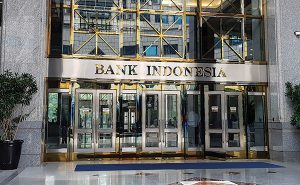Bloomberg
Indonesia’s central bank slowed the pace of its monetary tightening, in a move seen to support growth as inflationary pressures ease.
Bank Indonesia (BI) opted to raise the key rate by a quarter-point to 5.5%, marking a shift to “more measured†moves after three successive half-point actions to tame inflation. As the outlook for the global economy deteriorates in 2023, Governor Perry Warjiyo wants to ensure ample liquidity to boost spending and borrowing.
“BI will not raise interest rates excessively,†Warjiyo said. “BI will continue to assess its next interest rate moves, but our hints have been clear: inflation and inflation expectations are declining.â€
The central bank expects gross domestic product advancing 4.5%-5.3% this year and the next — enough to turn Indonesia into a $1.3 trillion economy in 2023. That will almost match the size of Mexico, the world’s 15th largest economy that’s expected to experience slower growth during the same period.
Calibrated rate increases will ensure that demand-recovery is not choked, helping the country’s growth to remain on course to beat the rest of the MINT pack, an acronym popularized a decade ago by former Goldman Sachs chief economist Jim O’Neill to describe the developing economies of Mexico, Indonesia, Nigeria and Turkey.
Southeast Asia’s largest economy has likely moved past the worst of price pressures. The central bank expects headline inflation to decelerate to 5.4% by end-2022 from the seven-year high of 6% in September. Core inflation should stay within the 2%-4% target range through 2023.
“The need for outsized rate increases have eased and rate hike cycle is entering the late stage,†said Winson Phoon, head of fixed income research at Maybank Securities Pte in Singapore, who expects the rate to peak after two more quarter-point increments by the first quarter of next year.
 The Gulf Time Newspaper One of the finest business newspapers in the UAE brought to you by our professional writers and editors.
The Gulf Time Newspaper One of the finest business newspapers in the UAE brought to you by our professional writers and editors.
